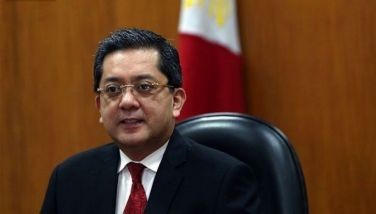Gender equality at work: Phl is 9th
GENEVA – The Philippines ranked ninth among 142 countries for gender equality in the workplace, according to a report published by the World Economic Forum (WEF) yesterday.
The five Nordic countries, led by Iceland, remained the most gender-equal.
They were joined by Nicaragua, Rwanda, Ireland, the Philippines and Belgium in the top 10, while Yemen remained at the bottom of the chart for the ninth year in a row.
Meanwhile, the United States climbed three spots from last year to 20th, after narrowing its wage gap and hiking the number of women in parliamentary and ministerial level positions.
France catapulted from 45th to 16th place, also due to a narrowing wage gap but mainly thanks to increasing numbers of women in politics, including near-parity in the number of government ministers.
With 49 percent women ministers, France now has one of the highest ratios in the world.
Britain dropped eight spots to 26th place, amid changes in income estimates.
Among other large economies, Brazil stood at 71st place, Russia at 75th, China at 87th and India at 114, the report showed.
Long way to go
But the WEF report said that while women are rapidly closing the gender gap with men in areas like health and education, inequality at work is not expected to be erased until 2095.
The organization, which yearly gathers the global elite in the plush Swiss ski resort of Davos, said that the worldwide gender gap in the workplace had barely narrowed in the past nine years.
Since 2006, when the WEF first began issuing its annual Global Gender Gap Reports, women have seen their access to economic participation and opportunity inch up to 60 percent of that of men’s, from 56 percent.
“Based on this trajectory, with all else remaining equal, it will take 81 years for the world to close this gap completely,” the WEF said in a statement.
The world would be better served to speed up the process, according to WEF founder and chief Klaus Schwab.
“Achieving gender equality is obviously necessary for economic reasons. Only those economies which have full access to all their talent will remain competitive and will prosper,” he said.
‘Far-reaching’ progress
The report looked at how nations distribute access to healthcare, education, political participation and resources and opportunities between women and men.
Almost all the countries had made progress towards closing the gap in access to healthcare, with 35 nations filling it completely, while 25 countries had shut the education access gap, the report showed.
Even more than in the workplace, political participation lagged stubbornly behind, with women still accounting for just 21 percent of the world’s decision-makers, according to the report.
Yet this was the area where most progress had been made in recent years.
“In the case of politics, globally, there are now 26 percent more female parliamentarians and 50 percent more female ministers than nine years ago,” said the report’s lead author, Saadia Zahidi.
“These are far-reaching changes,” she said, stressing though that much remained to be done and that the “pace of change must be accelerated in some areas.” – Mayen Jaymalin, AFP
- Latest
- Trending



























